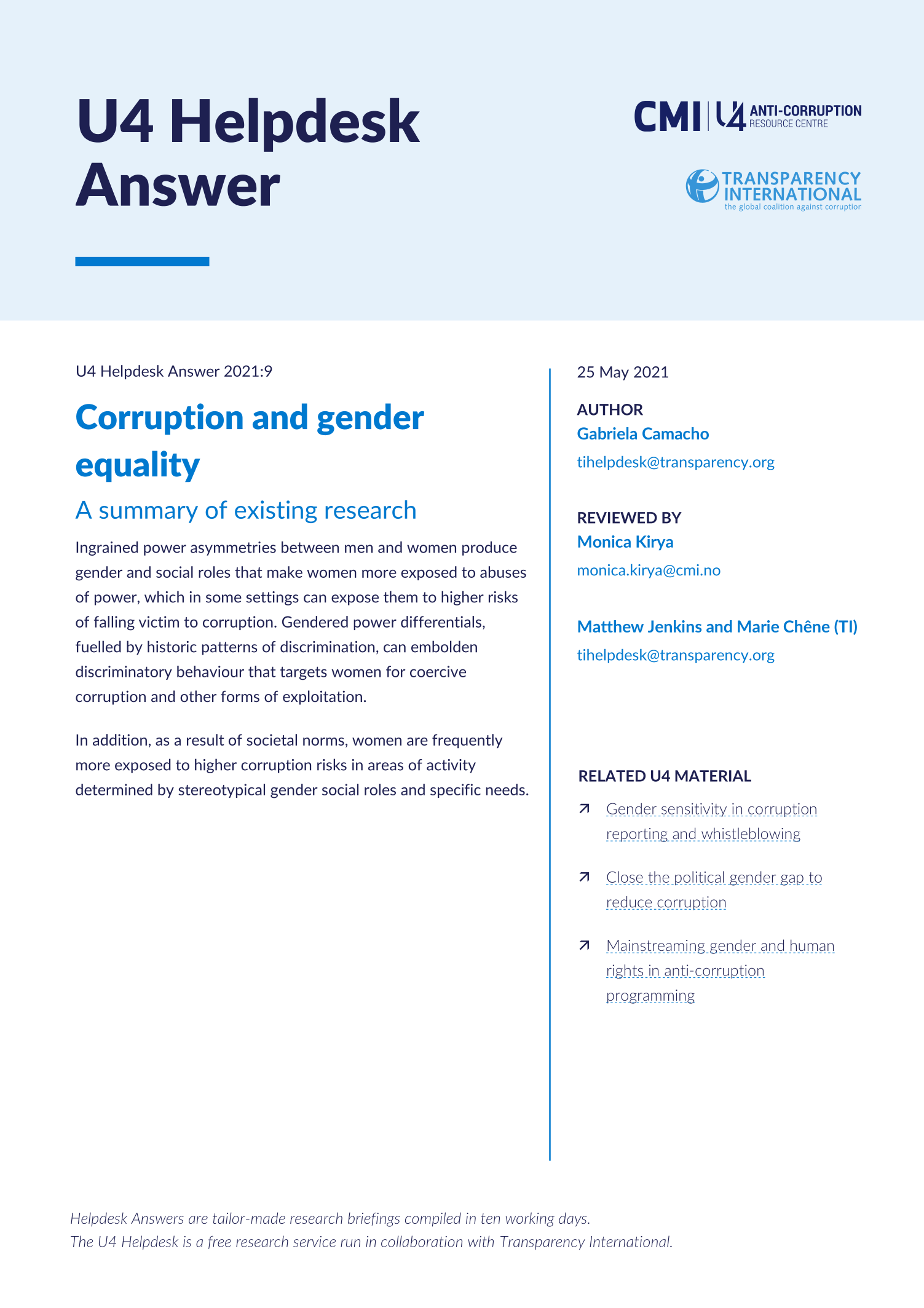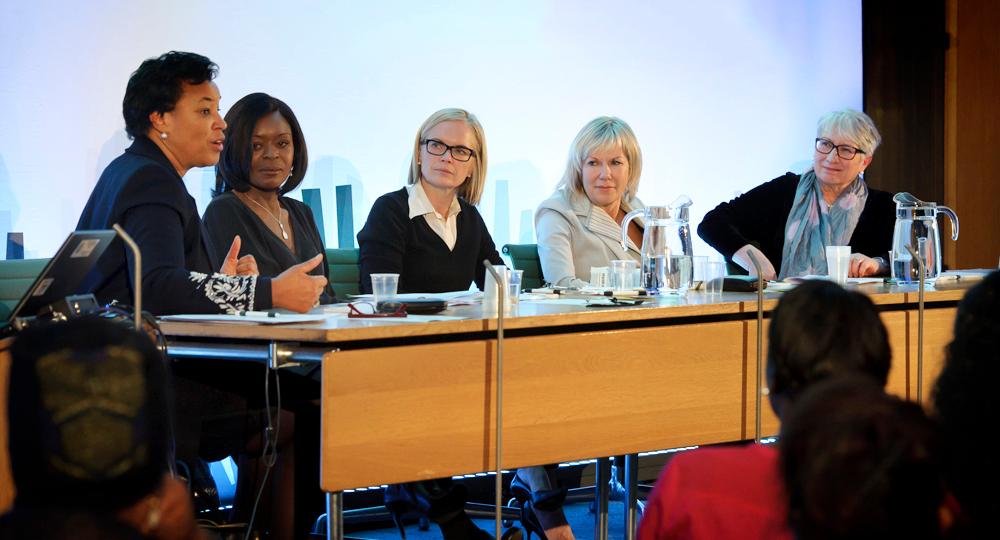Main points
- Corruption typically has a disproportionate impact on marginalised populations, and women are no exception. Corruption hinders both women’s access to good quality public services, upon which women tend to have a greater reliance, as well as restricting women’s participation in public, economic and political life, limiting their influence over decision-making.
- A higher proportion of women in elected office is correlated with lower levels of corruption, but there are competing theories as to why this happens. What is known is that male dominated patronage networks can hinder women’s ability to run for office.
- Sextortion is a type of corruption that involves an implicit or explicit request to engage in any kind of unwanted sexual activity in exchange for exercising power entrusted to someone occupying a position of authority. Sextortion affects women at far higher rates than men.
- An intersectional approach could benefit future studies and help address the many dimensions that intersect in marginalised groups and make them more vulnerable to the effects of corruption.



